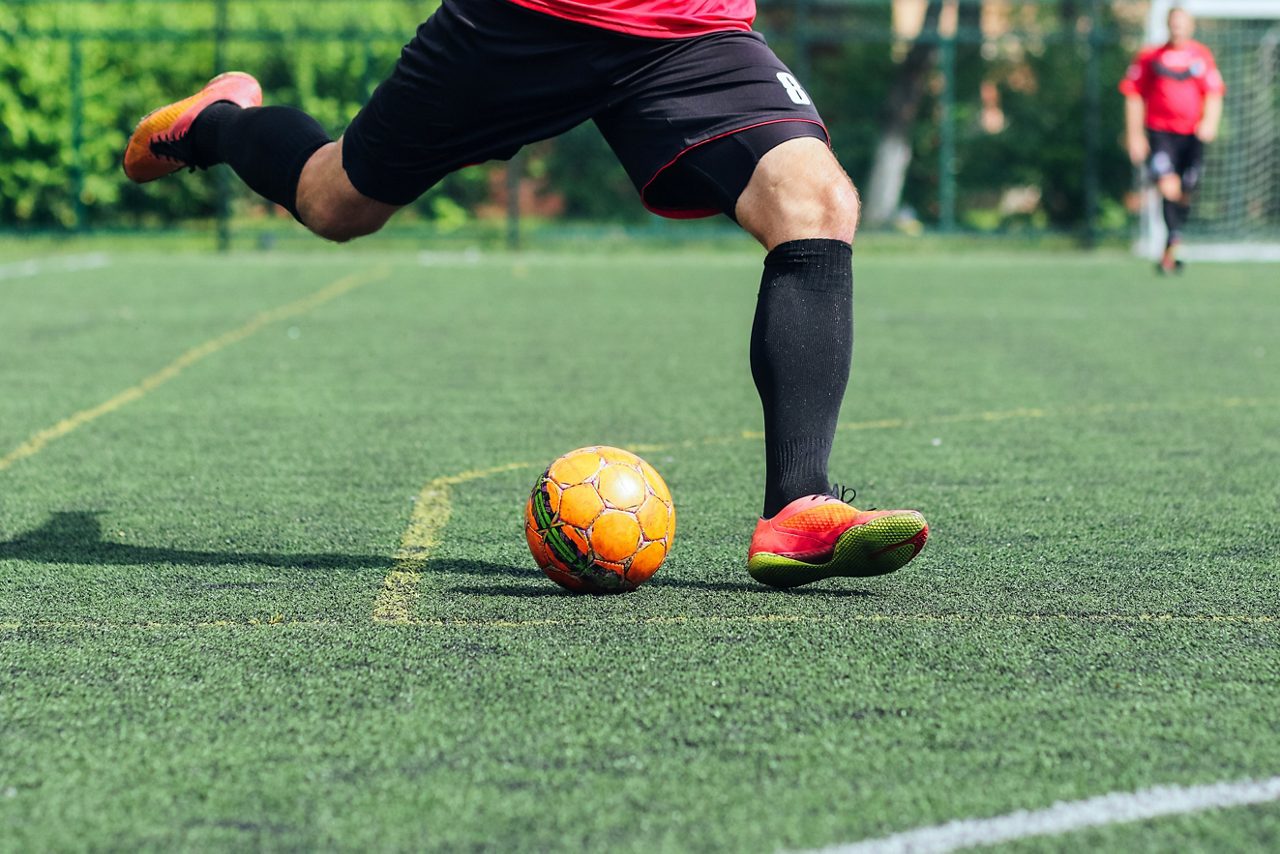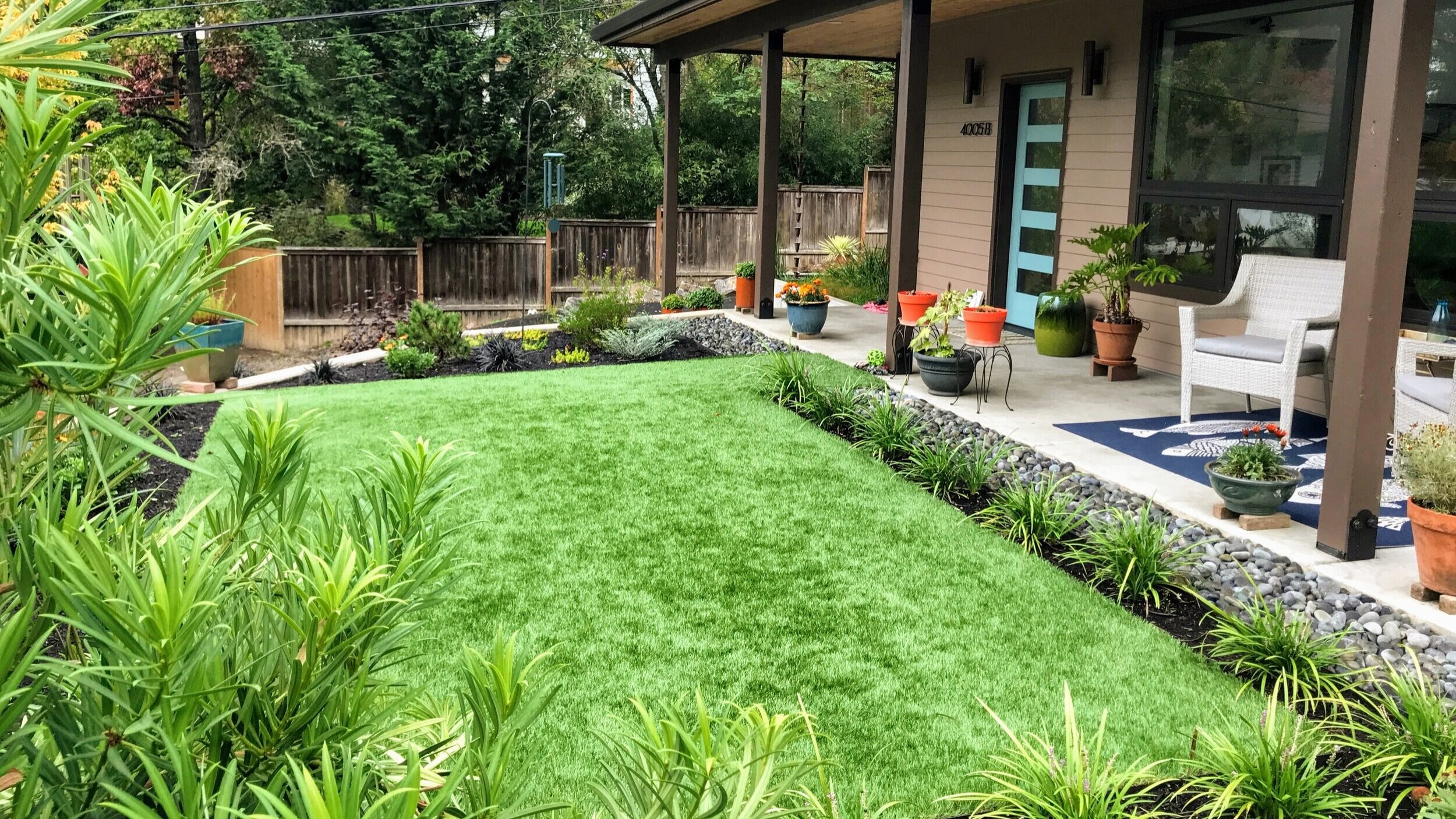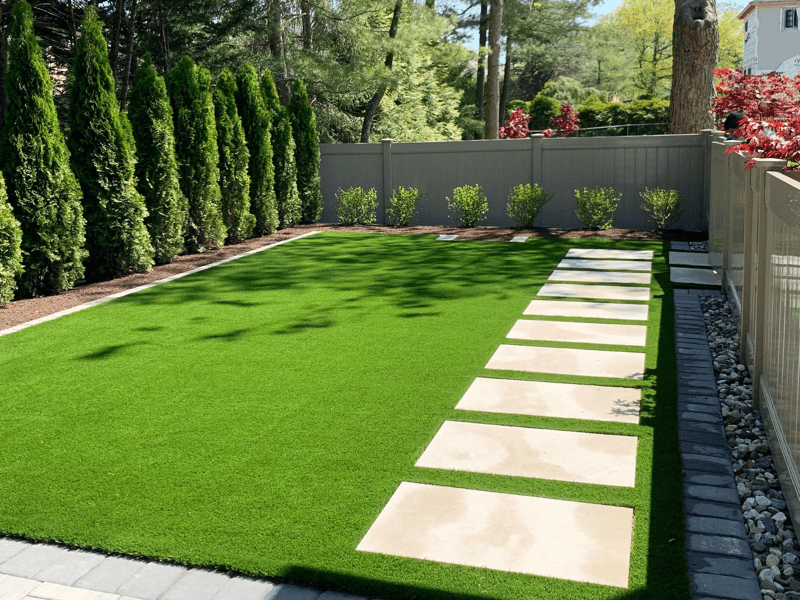Transform Your Outdoor Space with Arizona Artificial Turf for a Vibrant Green Look
Transform Your Outdoor Space with Arizona Artificial Turf for a Vibrant Green Look
Blog Article
Look Into the Environmental Perks of Opting for Synthetic Grass Solutions
The adoption of synthetic grass services provides a compelling possibility to resolve pressing environmental difficulties. By considerably minimizing water usage and lessening the application of dangerous chemicals, these options not just advertise lasting landscape design but also secure regional ecosystems. The lower carbon footprint linked with lowered upkeep activities adds to an extra sustainable method to land monitoring. However, the implications of these benefits prolong past mere preservation efforts, questioning concerning their long-lasting influence on environment preservation and overall eco-friendly equilibrium. Exploring these measurements reveals a complex interaction worth considering.
Water Conservation Advantages
One of the most considerable benefits of man-made lawn is its capability to preserve water. In comparison, artificial grass does not require watering, significantly reducing the general need for water sources.
By eliminating the demand for regular watering, synthetic grass adds to lasting landscape methods and helps mitigate the ecological effect of too much water intake. The preservation of water prolongs to the decrease of runoff, which can lead to soil erosion and river pollution.
Additionally, the installation of synthetic grass permits homeowners and towns to allocate water resources more effectively, concentrating on essential usages such as alcohol consumption water and agriculture. The change towards synthetic grass not only promotes accountable water use however likewise straightens with broader ecological goals targeted at protecting natural sources.
As communities significantly prioritize sustainability, the water preservation advantages of synthetic grass provide an engaging situation for its fostering in industrial and property landscape design tasks.
Minimized Chemical Usage
The shift to synthetic grass substantially reduces the dependence on chemical treatments commonly used in all-natural grass upkeep. Standard grass administration normally involves the application of plant foods, chemicals, and herbicides to promote development and control parasites. These chemicals can pose dangers to human health, regional wildlife, and the atmosphere, adding to soil and water contamination.
On the other hand, artificial lawn gets rid of the requirement for these unsafe substances. As soon as set up, it requires marginal maintenance, largely containing normal cleaning and irregular infill replenishment. This reduction in chemical usage not just profits the instant setting however additionally contributes to wider eco-friendly security. By reducing the launch of synthetic compounds into the environment, synthetic grass promotes much healthier dirt and water systems.
Moreover, the absence of chemical overflow connected with artificial grass installations helps secure regional waterways from contamination, supporting water life and preserving biodiversity. Artificial turf companies phoenix. As areas significantly prioritize sustainable techniques, going with artificial grass presents a practical solution that straightens with environmental preservation goals. Through this change, homeowner can appreciate lavish green rooms without jeopardizing eco-friendly health and wellness, leading the way for an extra lasting future
Lower Carbon Footprint

Moreover, the setup of synthetic grass can lead to significant water conservation. Natural grass require significant quantities of water for irrigation, which not only contributes to the carbon impact related to water extraction and treatment but also stress neighborhood water sources. In contrast, fabricated lawn needs minimal upkeep, requiring no watering, consequently substantially reducing water usage and its associated power prices.
Furthermore, the durability of synthetic grass adds to its decreased carbon influence. With a lifespan of up to 15 years or even more, the requirement for constant replacements is diminished, leading to much less waste and reduced energy consumption in manufacturing and throwing away standard turf choices. from this source In general, man-made lawn presents a sustainable alternative for ecologically mindful landscaping.
Habitat Conservation
Habitat preservation is a vital consideration in the argument over landscape design options, specifically when contrasting synthetic grass to natural lawn. All-natural grass lawns usually require comprehensive upkeep, consisting of making use of chemicals, herbicides, and plant foods, which can negatively affect local communities. These chemicals can leach into the soil and waterways, damaging indigenous vegetation and animals and interfering with regional habitats.
In contrast, man-made lawn presents a possibility to lower the environmental impact of landscape design. By selecting artificial turf, house owners can reduce the disturbance of natural environments related to standard yard care methods. Synthetic grass eliminates the need for harmful chemicals, thereby protecting nearby wild animals and preserving the stability of surrounding environments. The installment of man-made turf can lead to the conversion of previous turf areas into even more biodiverse landscapes, such as pollinator yards or native plant areas, which can support local wildlife.
Ultimately, the shift to synthetic lawn not just preserves water and minimizes maintenance initiatives but also cultivates an extra unified partnership between human activities and the natural surroundings, promoting environment conservation while doing so.
Long-Term Sustainability
Lasting sustainability is a crucial consider evaluating the advantages of synthetic grass over typical turf yards. Among one of the most considerable advantages of synthetic grass is its durability; it can last as much as 15-20 years with minimal upkeep, whereas natural directory lawn calls for frequent reseeding and substitute. This long life reduces the requirement for continuous resources, such as water, fertilizers, and pesticides, which are essential for maintaining a healthy yard lawn.
In addition, synthetic grass adds to a decrease in carbon emissions related to yard care equipment. Standard yards usually require gas-powered lawn mowers, leaners, and blowers, every one of which add to air pollution. Artificial turf companies phoenix. On the other hand, synthetic grass eliminates the demand for such devices, advertising a cleaner environment
Moreover, the manufacturing of fabricated turf increasingly utilizes recycled products, enhancing its sustainability account. As suppliers adopt environmentally friendly practices, the ecological footprint of man-made grass remains to lessen.

Final Thought
The fostering of fabricated grass solutions offers significant environmental benefits, including significant water conservation, decreased dependence on unsafe chemicals, and a reduced carbon impact. Fabricated grass aids in maintaining all-natural habitats by lessening land disturbance and advertising lasting sustainability through the usage of long lasting products. Jointly, these variables highlight the capacity of synthetic grass to add favorably to environmental health and wellness and provide a sensible alternative to standard landscaping techniques in a significantly resource-conscious globe.
In contrast, artificial turf does not need watering, significantly lowering the total need for water sources. By decreasing the launch of synthetic substances see here now right into the ecological community, fabricated lawn promotes much healthier dirt and water systems.
Furthermore, the installment of man-made lawn can result in substantial water preservation. In comparison, artificial turf needs marginal upkeep, needing no watering, thereby considerably decreasing water use and its connected energy prices.

Report this page